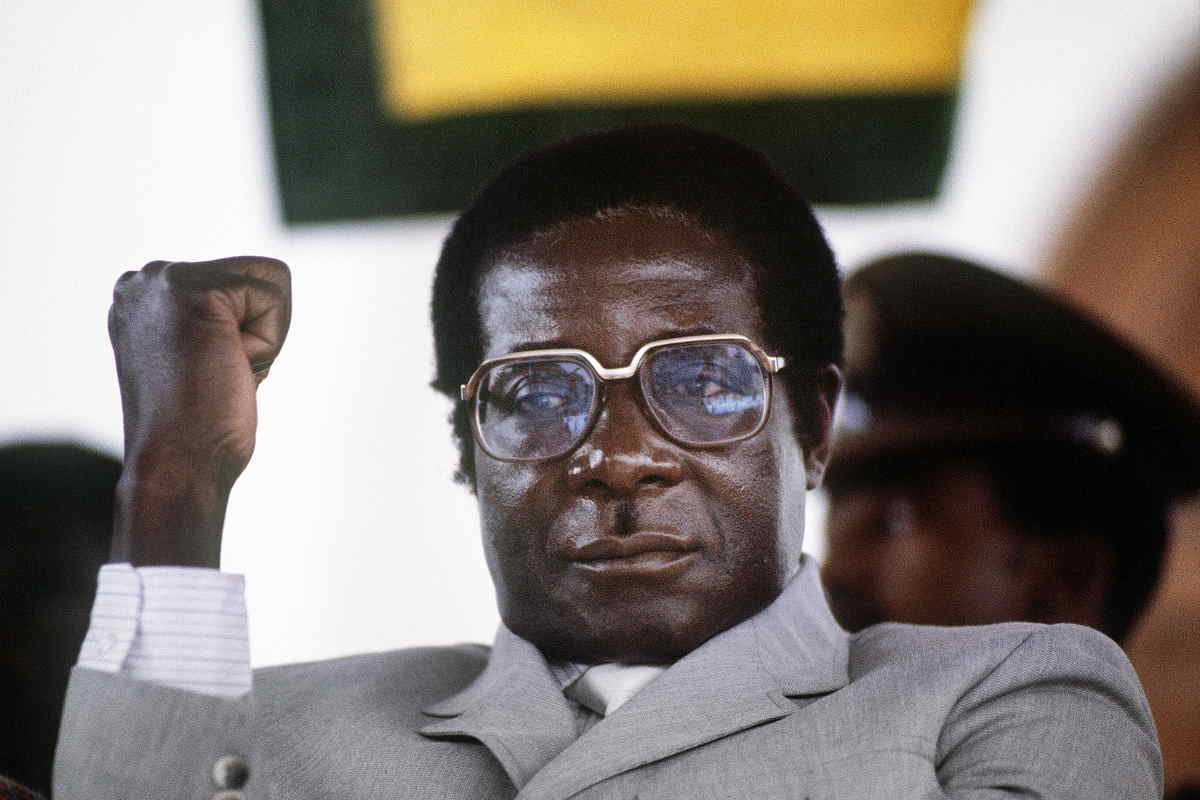Robert Mugabe, the former guerrilla hero turned despot who ruled Zimbabwe for 37 years until the military forced him out, has died aged 95, the country’s president announced Friday.
First heralded as a liberator who rid the former British colony Rhodesia of white minority rule, Mugabe used repression and fear to govern until he was finally ousted by his previously loyal generals in November 2017.
The country’s former colonial ruler Britain expressed its condolences but said there were “mixed emotions” after Mugabe's death.
“Zimbabweans suffered for too long as a result of Mugabe’s autocratic role,” the foreign ministry said in a statement.
Mugabe died at 0240 GMT in Singapore, where he had been hospitalised in April, a Zimbabwean diplomat in South Africa said, speaking on condition of anonymity.
The Singaporean foreign ministry confirmed that Mugabe had died at Gleneagles Hospital.
“The Ministry is working with the Embassy of Zimbabwe in Singapore on the arrangements for the late Mr Mugabe’s body to be flown back to Zimbabwe,” it said in a statement.
Mugabe had been battling ill health, and after his humiliating fall from office, his stamina seeped away rapidly.
“Mugabe was an icon of liberation, a pan-Africanist who dedicated his life to the emancipation and empowerment of his people. His contribution to the history of our nation and continent will never be forgotten,” President Emmerson Mnangagwa tweeted after announcing the news.
Opposition party leader Nelson Chamisa said that despite “great political differences” with Mugabe’s regime, he recognised the “contribution made during his lifetime as a nation’s founding President”.
‘Revolutionary’
South African President Cyril Ramaphosa remembered Mugabe as a “liberation fighter” and a “champion of Africa's cause against colonialism”.
Kenyan leader Uhuru Kenyatta hailed Mugabe as an “elder statesman, a freedom fighter and a Pan-Africanist who played a major role in shaping the interests of the African continent”.
China lauded him as an “outstanding national liberation movement leader” while Russian President Vladimir Putin noted Mugabe’s “great personal contribution” to Zimbabwe’s independence.
The Mugabe years are widely remembered for his crushing of political dissent and policies that ruined the economy.
The former political prisoner turned guerrilla leader swept to power in 1980 elections after a growing insurgency and economic sanctions forced the Rhodesian government to the negotiating table.
In office, he initially won international plaudits for his declared policy of racial reconciliation and for extending improved education and health services to the black majority.
Human rights violations
But that faded rapidly as Mugabe cracked down on his opponents. During the 1980s, he led an infamous campaign known as Gukurahundi during which an estimated 20,000 dissidents were killed.
The violent seizure of white-owned farms turned him into an international pariah – though his status as a liberation hero still resonates strongly across Africa.
Aimed largely at angry war veterans who threatened to destabilise his rule, the land reform policy wrecked the crucial agricultural sector, caused foreign investors to flee and plunged the country into economic misery.
All along, the Mugabe regime was widely accused of human rights violations and of rigging elections.
The topic of his succession was virtually taboo until he reached his 90s and became visibly frail.
As his health weakened, the military finally intervened to quash his second wife Grace's presidential ambitions in favour of their preferred candidate, Mnangagwa, Mugabe's vice president at the time.
Mnangagwa took over in November 2017 and was elected in July last year.
Mixed legacy
In Zimbabwe’s capital Harare, residents woke to the news and went about their daily business, with acting president Kembo Mohadi leading a planned street clean-up campaign.
Mnangagwa, who was attending the World Economic Forum in Cape Town, arrived in Harare on Friday afternoon after cutting short his South Africa visit.
Many in Zimbabwe remembered Mugabe as a tyrant who oversaw the decline of one of Africa’s most prosperous nations.
“Mugabe was educated but he used his education for evil. He manipulated everyone around him and fooled the world. Only Zimbabweans can testify to this as we lived in hell under his leadership,” said Baster Magwizi, an independence war veteran in Bulawayo, Zimbabwe’s second city.
“As a leader the only thing he did wrong was to stay in power for a long time,” Harare resident Joshua Tsenzete said.
But Harare schoolteacher Tatenda Musoni was forgiving.
“To be honest I thought I would celebrate when he died but.... I’m actually sad because he was an embodiment of what a true African should be.
“He had his flaws but he did a lot of positive things for us which I doubt we will ever see again in this country.”
Ibbo Mandaza, head of a southern African think-tank, said Mugabe would be remembered as one of Africa’s “founding fathers”.
Mandaza pointed to the example of Tanzania’s founding leader Julius Nyrere and South African liberation icon Nelson Mandela.
“Unlike Nyerere and Mandela he (Mugabe) stayed on. He would have had a much more favourable obituary if he had left earlier.” - AFP
